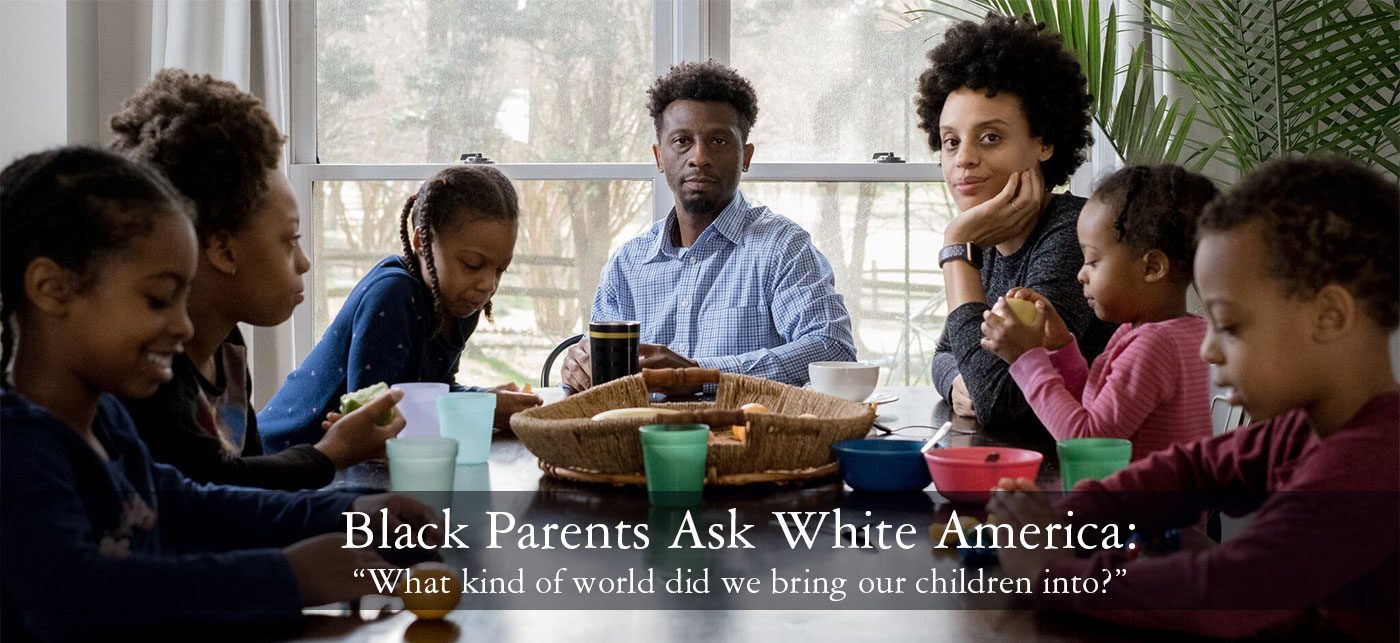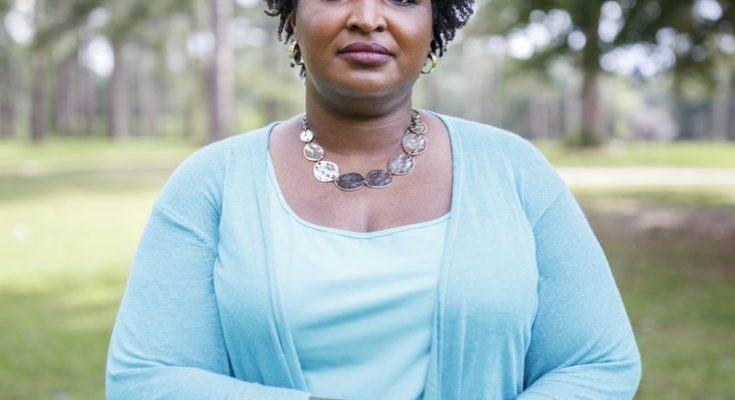Early voting starts this Monday in Georgia and the race for governor could make history in two ways: first woman, first African-American. Essence Magazine asked a great question — and we are wondering too — can Stacey Abrams turn Georgia blue?
Read the full Essence article below.
In the bustling southern metropolis of Atlanta, Black excellence is visible everywhere: Streets are named for legendary civil rights leaders, and it’s commonplace to spot power brokers, ballers and celebrities mingling. That said, it means something when someone commands attention simply by entering a room. So it’s […]
In the bustling southern metropolis of Atlanta, Black excellence is visible everywhere: Streets are named for legendary civil rights leaders, and it’s commonplace to spot power brokers, ballers and celebrities mingling. That said, it means something when someone commands attention simply by entering a room.
So it’s worth noting the reaction when Stacey Abrams—the rising political star in Georgia aiming to make U.S. history as the first African-American female governor, ever—arrives at Le Petit Marché, a Black-owned café in the city’s historic Kirkwood neighborhood.
Heads raise and necks crane as the statuesque (nearly six feet tall in heels) candidate rushes in during lunch hour on a balmy January afternoon. She’s wearing a candy pink sweater set and sparkly earrings. A natural twist-out hairstyle frames chiseled cheekbones.
The Democrat offers a cordial greeting before taking a seat at the establishment, where she’s a regular. (Campaign headquarters are nearby.) “I come here often,” says Abrams, who also owns a condo in Kirkwood. “This is one of those great spaces where the community gathers.”
Dr. Martin Luther King, Jr., the eminent native son of Atlanta, preached and wrote about the “Beloved Community”—a society wherein all people share the earth’s bounty, and work to combat poverty, hatred, violence, and war with sisterly and brotherly love.
As Abrams articulates her vision for leading the Peach State and its 10.4 million residents—about 32 percent of them, African-American—it’s clear that this daughter of the deep South is passionate about building community, too, where gender, melanin or ZIP code doesn’t dictate who, or what, an individual can achieve. “My campaign is a new vision of what Georgia can be,” says the attorney and former House minority leader, who resigned her seat in the Georgia General Assembly last summer to focus on the governor’s race. “And I’m a very new kind of candidate.”
Indeed, Abrams has the opportunity to ascend to Georgia’s highest office and shatter glass ceilings in the process. There has never been a person of color or woman governor in the state.
Moreover, America has never elected a Black woman governor in this nation’s 241-year history, one marred by a complex past of slavery, subjugation, and discrimination that continues to this day.
“I grew up in the South. I’ve heard the N-word used against me. I’ve had people question my intellectual capacity and attribute my success to anything other than my capacity,” says Abrams. “But the reality is, racism isn’t going to disappear. I’ve faced sexism and that’s not going to disappear…. My mission is to never allow another person’s sense of my capacity to dictate what I do.”
THE GUBERNATORIAL GRIND
Since officially announcing her candidacy back in June 2017, she has traversed the state, taking part in a flurry of living room fund-raisers and town hall forums. She even participated in last year’s Atlanta Pride Festival. The goal is to reach as many voters as possible before this year’s May 22 primary election.
“There are 159 counties and I’ve been to most of them,” Abrams says of her lengthy days and nights on the campaign trail. “You can’t solve every problem, but we have to be able to go anywhere and talk to everyone and listen.”
Listening has helped her establish a platform with three pillars: educating “bold and ambitious” children from cradle to career; creating a more equitable, diverse economy; and building an effective and engaged government.
To that end the Abrams campaign has already rolled out several policy proposals: There’s the Advanced Energy Jobs Plan, which she says would deliver between 25,000 and 45,000 high-wage, long-term positions in the state—from construction to coding. Her child-care plan is designed to extend access to high-quality programs for newborns to prekindergarteners, improve the livelihood of teachers and more. She’s also put forth strategies around stemming gun violence; reforming community policing and the criminal justice system; and providing an economic mobility plan aimed at reducing income inequality and lifting the impoverished in Georgia. Abrams’s anti-poverty initiatives are influenced by her own childhood.
WHERE IT ALL BEGAN
Wisconsin-born and raised in Gulfport, Mississippi, the 44-year-old is the second eldest of six children nurtured in a tight-knit religious clan. Abrams’s mother is a retired librarian; her father, a former shipyard worker. Though both parents were college-educated, they struggled to make ends meet.
“We were working class, working poor, depending on the day,” she recalls. “And the challenge was that, even though [my parents] had gotten the education they were told they needed to have and were hardworking, circumstances—you know, racism, sexism—all conspired to really harm their ability to achieve middle-class status. And we grew up really on the edge.”
Despite their economic hardships, the family was committed to community service. The Abrams brood knew that come Saturday, they’d be piling into their car to do some type of volunteer work, perhaps at a soup kitchen or a homeless shelter. The kids sometimes staged holiday productions at juvenile detention centers.
“Stacey has always cared about people,” says her mom, Carolyn Abrams, who describes her daughter as a studious, obedient child who preferred reading books to playing outside. “She grew up learning that no matter how little you have, there’s someone with less and it’s your obligation to reach out and help that person.”
That ethic led the family to Georgia, where her parents pursued graduate divinity studies in Atlanta. The couple went on to become ordained United Methodist ministers.
Abrams, who was a teenager when they relocated, attended DeKalb County public schools and earned the distinction of class valedictorian at Avondale High School, where she participated in the performing arts. It was in that creative incubator that the young actor/theater student was bitten by the political bug.
“I was away on a trip, and while I was gone, I got elected to a [student board]. I didn’t actually run. I was just not there. So they put my name in and that was my first election. It was a great way to win an election, not to have to run, not to even have to put my name in,” she says, chuckling.
Abrams dove into student politics while matriculating at Spelman College. Dr. Johnnetta B. Cole, who served as the institution’s first African-American woman president from 1987 to 1997, remembers Abrams as “exceptional.” “Stacey saw things she didn’t think were right and came to see me during my office hours,” says Cole. After maybe the third visit from Abrams, the educator threw out a challenge: “I told her to work with fellow students and fix it. I knew as the leader of a historically Black college for women to tell her that if you want to see change, you must own the responsibility and give voice to those issues.”
Abrams took that advice. As a freshman, she ran for the student class council and by her senior year had been elected president of the Student Government Association. Along the way she juggled academics with civic engagement, attending Atlanta’s city council meetings and holding a research assistant position at City Hall in the Office of Youth Services.
After graduating in 1995, Abrams went on to earn degrees from the Lyndon B. Johnson School of Public Affairs at the University of Texas at Austin, and Yale Law School. In 2006, the then tax attorney and small-business owner was elected to the Georgia General Assembly in the House of Representatives. Four years later Abrams was elevated to House minority leader, breaking ground as the first woman and African-American to do so.
As House minority leader in a so-called red state, where Republicans are a supermajority—controlling both the executive and legislative branches—Abrams built strategic alliances across the aisle.
During her 11-year tenure, she helped thwart legislation to raise taxes on the poor and middle class, and to roll back reproductive health care. Abrams also brokered compromises that led to progress on transportation, infrastructure and education. She has also endorsed same-sex marriage and cosponsored a bill to prohibit LGBTQ discrimination within state agencies.
Abrams is also extremely proud of introducing legislation designed to improve the welfare of grandparents and other kin responsible for raising children and securing increased funding to support these families. According to the Georgia Kinship Care Study, upwards of 103,000 grandparents and 128,000 children across the state are potentially affected.
The issue resonated with Abrams: After her younger brother was incarcerated, her mother and father adopted his daughter.
Representative Carolyn Hugley is a veteran Georgia state legislator whose efforts helped advance the kinship legislation. She believes her onetime colleague offers the commitment to service and experience to best move their state forward. “I think we sell Stacey Abrams short when we talk about her just in terms of race and gender, because she transcends that,” Hugley says. “She is the superior candidate.” Hugley has worked with four Georgia governors, including current officeholder Nathan Deal, a Republican who is term-limited.
“Stacey is probably more qualified than any of the governors we’ve had,” she says.
ON THE GROUND
It’s a drizzling Saturday morning at the sprawling Abrams campaign headquarters in Atlanta, where dozens of volunteers are assembled for a Day of Action. The diverse, multigenerational group is eager to stuff envelopes and canvass neighborhoods.
African-American women such as LaQuita Bell, a millennial in her late twenties, are ready to roll up their sleeves. “I’ve never done this type of activity before, but I want to be more involved in the political process, especially now,” says Bell.
Her buddy on the canvass trail is Wanda Mosley, 48, a campaign veteran who has lent her time and money to everyone from President Barack Obama to local candidates. She’s a *member of 1,000 Women Strong, a coalition of women from Georgia and across the country who have committed to building community-led initiatives in support of Abrams’s candidacy.
The women, dressed in T-shirts bearing Abrams’s name, set off on foot in a pristine tree-lined neighborhood with stately homes and luxury cars in the driveways. Many people aren’t home, but a few folks open their doors and politely listen.
“I’m very much committed to helping Stacey get elected,” says Mosley afterward. “She’s a true public servant.” She pauses, “And the sista is just bad!”
That sentiment seems to be confirmed when Abrams shows up at the campaign headquarters later in the day to thank volunteers, and she’s greeted like a rock star. Besides enlisting enthusiastic volunteers, Abrams is racking up endorsements. Backers include civil rights icons Congressman John Lewis and Rev. Dr. Joseph Lowery, Senator Cory Booker and multiple women of the Congressional Black Caucus. Organizations such as Democracy for America, the Georgia Working Families Party, Higher Heights, Collective Political Action Committee, NARAL Pro-Choice America and EMILY’s List have also expressed support.
Abrams is focused on building the progressive coalition her campaign believes will help her win: African-Americans, Hispanics, Asians and untapped White voters.
“In 2013 Georgia had 800,000 people of color who were unregistered to vote, but were eligible,” says Abrams, who launched the New Georgia Project in 2014 to help boost the numbers and provide voter education. While she no longer runs the nonprofit, she voiced support for its overall mission. “The reality is, voter registration, especially among communities of color and low-income communities, tends to suffer unless someone proactively invites them to register because of the complexity of registration, because of worries about voter suppression and because of access,” she says.
Despite so many challenges—both seen and unseen—Abrams is undeterred. She has spent her entire life preparing for this election. She also has another aim, one that transcends even the highest honor in the land.
“I embrace the fact that when people look at me they see something different,” she says. “I also want Black women looking at me to see themselves, their children, sisters and their cousins. And to know that we can all strive and achieve and that there’s no barrier to our success.”





